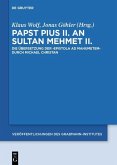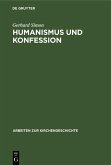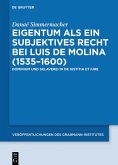Two contemporary translations, one in German by Georg von Cell and one in French by Jean Hotman, show us how De officio pii viri was adapted to the ongoing struggle for church peace in different parts of Europe, a struggle that was led by jurists and theologians, outstanding members of the Republic of Letters, who were able to spread their ideas by their large epistolary networks.
The life story of De officio pii viri highlights the birth, expansion and failure of ideas; how they profit from the support of the mighty and how they fail when opposed by the uncompromising: those who think they speak in the name of God.
Dieser Download kann aus rechtlichen Gründen nur mit Rechnungsadresse in A, B, BG, CY, CZ, D, DK, EW, E, FIN, F, GR, HR, H, IRL, I, LT, L, LR, M, NL, PL, P, R, S, SLO, SK ausgeliefert werden.









